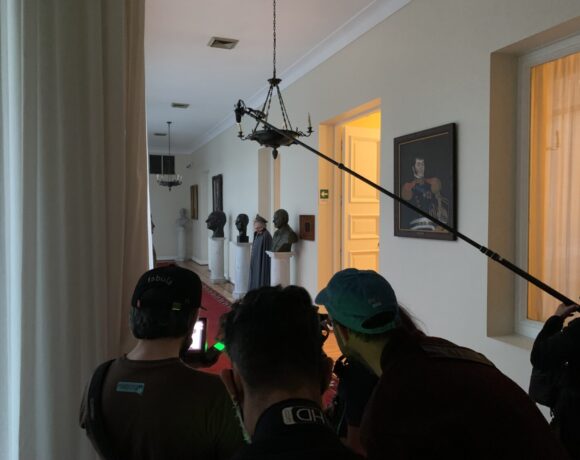Estimated reading time: 2 minutes, 39 seconds
Studentswomen, environmentalists, health workers, No More AFP, together to demand a change to the system of inequality and injustice created by Pinochet, and not changed by the Concertación.
It will be difficult to forget the great marches that took place throughout the country and that 25 October 2019 reached an apotheotic moment. Today the right, the business community and their media try to hide this, highlighting, instead, criminal violence as the main factor of the revolution.
The social outcry started with the students’ demand for free quality education, at a time when CAE debt increased the profits of the banks.
The student revolution quickly spread to wider and more diverse social sectors: women, environmentalists, regionalists, defenders of health and decent pensions.
The thesis of growth by spillover, as a defense of the movement, turned out to be a delusion. Poverty was reduced, but inequality was not under control. The richest 1% took 50% of the national wealth, while retirees do not live on the poor pensions of the AFPs; ISAPRES and their clinics multiply their profits, while a shameful health system for the poor continues; and, at the same time, the education system has put poor and middle-class students in debt, giving them a poor quality education.
Therefore, the social revolution became a revolution against a system of injustice and rejection of a State that used all the tools of its power to favor the predatory minority. But also in the social protest there was a strong part of moral outrage against business-political corruption, which had come to light with the cases of Penta, SQM and Corpesca.
Also, the anger of the citizens denounced the destruction of the old left and the Christian Democratic Party, which had not only preserved the neoliberal model inherited from the Pinochet dictator, but also showed several of its representatives sitting on the boards of directors of their owners’ corporations. wealth, others receiving money for political campaigns or, some, shamelessly defending a system of injustice. The rejection of all political parties and Parliament had been an inevitable part of the revolution.
Unlike the right-wing media establishment, no one organized 18/O. It was a spontaneous movement. The people were tired of receiving accusations and beatings until they could not take it anymore and they revolted. It was the reaction against an economic system and a political regime that protects the rich, which has robbed the national majority.
Peaceful behavior prevailed in the movements, although unfortunately there was violence from criminals and anarchist groups. Anger and resentment, along with a lack of social integration, largely explain acts of violence in the midst of citizen movements. In addition to this there was a weak left, unable to lead the protests and unable to stop excessive crime.
However, at the same time, the repressive actions of the State were unparalleled, with tragic results in deaths, injuries and hundreds of people who lost their sight due to tear gas bombs and bullets from the rifles of the Carabineros.
However, the people had realized that the economic model and the subordinate state, which was established in the 1980 Constitution, had closed the doors to a fair distribution of power and wealth. And he also realized that the politicians, who had until now ruled the country, did not have the will to change the order of things.
The revolution opened up the opportunity to change the model of inequality and injustice and, at the same time, it raised the possibility of replacing the political class that had been complacent with the that model. The approach was made to demand a New Constitution, which would change the founding institutions of neoliberalism.
It was not performed. Because no political force was able to organize the partial demands and the diverse groups established in the Constituent Assembly. The constitutional proposal, which established the new rules of the game for our country, was seen as too radical and contained too many issues of identity rather than a transformative world proposal. The citizens rejected him.
With the rejection of the new constitutional proposal, the opportunity to change the neoliberal model was lost.
As a result, five years after the social revolution, the founding institutions of the socio-economic system of injustice and inequalities are still present, and they are experiencing a lacerating moral crisis, which every day shows the speed and traps of the business class and its politicians against the national majority. Therefore, 18/O will hardly be forgotten.
Roberto Pizarro
Tags:



